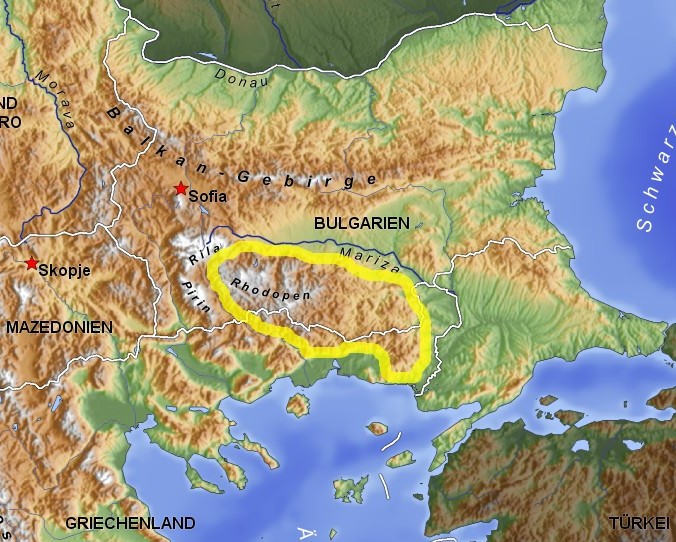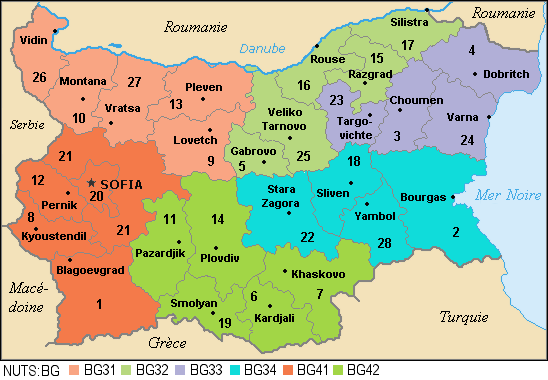|
Brashten
Brashten ( bg, Бръщен) is a village in southwestern Bulgaria. It is located in the municipality of Dospat, Smolyan Province. Geography The village of Brashten is located in the Western Rhodope Mountains. It is situated in the Chech region. History According to Vasil Kanchov, in 1900 Brashten was populated by 220 Bulgarian Muslims, living in 50 houses. Religion The population is Muslim. Most inhabitants of the village are Pomaks Pomaks ( bg, Помаци, Pomatsi; el, Πομάκοι, Pomáki; tr, Pomaklar) are Bulgarian-speaking Muslims inhabiting northwestern Turkey, Bulgaria and northeastern Greece. The c. 220,000 strong ethno-confessional minority in Bulgaria is .... Sights * The remains of a Roman-style bridge. * The memorial of Vergil Vaklinov - a ranger, considered by many to have been a hero. Notes Villages in Smolyan Province Chech {{Smolyan-geo-stub ... [...More Info...] [...Related Items...] OR: [Wikipedia] [Google] [Baidu] |
Dospat Municipality
The Dospat Municipality is a municipality in southwestern Bulgaria and is one of the municipalities in the Smolyan Province. Geography It covers the southwestern Rhodope Mountains. 8 settlements belong to the municipality with a total of 8217 in 2016. Demography The municipality of Dospat lost a large part of its population since the fall of communism in Bulgaria, due to emigration and more recently due to negative growth rate. As of 018, the municipality of Dospat had 7,932 inhabitants, down from 10,489 inhabitants in 1992. There were 64 children born in 2016, down from 91 compared to five years earlier. The number of deaths is 89 as of 2016, down from 105 in 2011. The natural population growth is minus 25 people, nearly double as many compared to minus 14 people in 2011. Religion Nearly half of the population did not answer the question on their religion; only a slight majority did answer the question. Of those people only 55 are Orthodox Christians, while the other ... [...More Info...] [...Related Items...] OR: [Wikipedia] [Google] [Baidu] |
Chech (region)
Chech ( bg, Чеч, el, Τσέτσι) or Chechko ( bg, Чечко) is a geographical and historical region of the Balkan peninsula in southeastern Europe in modern-day Bulgaria and Greece. It consists of about 60 settlements and was traditionally mostly Pomak with an Orthodox Greek and Bulgarian minorities. The Chech region is situated on the border of the much larger regions of Macedonia and Thrace. It covers the western Rhodope Mountains and the northern slopes of Falakro ( bg, Боздаг, ''Bozdag''). It is divided in two: ''Drama Chech'' and ''Nevrokopi Chech''. The first one and partially the second one is in Greece. According to Vasil Kanchov the eastern border of Chech is the Dospat River and the western one is the river of Dabnitsa. Thus the Chech comprises the municipalities: Satovcha, Dospat and the villages in the valleys of the Dospat River and Bistritsa river. The villages in the Greek Chech are part of Kato Nevrokopi municipality and Sidironero community. The ... [...More Info...] [...Related Items...] OR: [Wikipedia] [Google] [Baidu] |
Countries Of The World
The following is a list providing an overview of sovereign states around the world with information on their status and recognition of their sovereignty. The 206 listed states can be divided into three categories based on membership within the United Nations System: 193 member states of the United Nations, UN member states, 2 United Nations General Assembly observers#Present non-member observers, UN General Assembly non-member observer states, and 11 other states. The ''sovereignty dispute'' column indicates states having undisputed sovereignty (188 states, of which there are 187 UN member states and 1 UN General Assembly non-member observer state), states having disputed sovereignty (16 states, of which there are 6 UN member states, 1 UN General Assembly non-member observer state, and 9 de facto states), and states having a political status of the Cook Islands and Niue, special political status (2 states, both in associated state, free association with New Zealand). Compi ... [...More Info...] [...Related Items...] OR: [Wikipedia] [Google] [Baidu] |
Rhodope Mountains
The Rhodopes (; bg, Родопи, ; el, Ροδόπη, ''Rodopi''; tr, Rodoplar) are a mountain range in Southeastern Europe, and the largest by area in Bulgaria, with over 83% of its area in the southern part of the country and the remainder in Greece. Golyam Perelik is its highest peak at . The mountain range gives its name to the terrestrial ecoregion Rodope montane mixed forests that belongs in the temperate broadleaf and mixed forests biome and the Palearctic realm. The region is particularly notable for its karst areas with their deep river gorges, large caves and specific sculptured forms, such as the Trigrad Gorge. A significant part of Bulgaria's hydropower resources are located in the western areas of the range. There are a number of hydro-cascades and dams used for electricity production, irrigation, and as tourist destinations. In Greece, there are also the hydroelectric power plants of Thisavros and Platanovrysi. The Rhodopes have a rich cultural heritage including a ... [...More Info...] [...Related Items...] OR: [Wikipedia] [Google] [Baidu] |
Vergil Vaklinov
Publius Vergilius Maro (; traditional dates 15 October 7021 September 19 BC), usually called Virgil or Vergil ( ) in English, was an ancient Roman poet of the Augustan period. He composed three of the most famous poems in Latin literature: the ''Eclogues'' (or ''Bucolics''), the ''Georgics'', and the epic ''Aeneid''. A number of minor poems, collected in the ''Appendix Vergiliana'', were attributed to him in ancient times, but modern scholars consider his authorship of these poems as dubious. Virgil's work has had wide and deep influence on Western literature, most notably Dante's ''Divine Comedy'', in which Virgil appears as the author's guide through Hell and Purgatory. Virgil has been traditionally ranked as one of Rome's greatest poets. His ''Aeneid'' is also considered a national epic of ancient Rome, a title held since composition. Life and works Birth and biographical tradition Virgil's biographical tradition is thought to depend on a lost biography by the Roman poet ... [...More Info...] [...Related Items...] OR: [Wikipedia] [Google] [Baidu] |
Muslim
Muslims ( ar, المسلمون, , ) are people who adhere to Islam, a monotheistic religion belonging to the Abrahamic tradition. They consider the Quran, the foundational religious text of Islam, to be the verbatim word of the God of Abraham (or '' Allah'') as it was revealed to Muhammad, the main Islamic prophet. The majority of Muslims also follow the teachings and practices of Muhammad ('' sunnah'') as recorded in traditional accounts (''hadith''). With an estimated population of almost 1.9 billion followers as of 2020 year estimation, Muslims comprise more than 24.9% of the world's total population. In descending order, the percentage of people who identify as Muslims on each continental landmass stands at: 45% of Africa, 25% of Asia and Oceania (collectively), 6% of Europe, and 1% of the Americas. Additionally, in subdivided geographical regions, the figure stands at: 91% of the Middle East–North Africa, 90% of Central Asia, 65% of the Caucasus, 42% of Southeast As ... [...More Info...] [...Related Items...] OR: [Wikipedia] [Google] [Baidu] |
Pomaks
Pomaks ( bg, Помаци, Pomatsi; el, Πομάκοι, Pomáki; tr, Pomaklar) are Bulgarian-speaking Muslims inhabiting northwestern Turkey, Bulgaria and northeastern Greece. The c. 220,000 strong ethno-confessional minority in Bulgaria is recognized officially as Bulgarian Muslims by the government. The term has also been used as a wider designation, including also the Slavic Muslim populations of North Macedonia and Albania. Most Pomaks today live in Turkey where they have settled as muhacirs as a result of escaping previous ethnic cleansing in Bulgaria. Bulgaria recognizes their language as a Bulgarian dialect whereas in Greece and Turkey they self-declare their language as the Pomak language. The community in Greece is commonly fluent in Greek, and in Turkey, Turkish, while the communities in these two countries, especially in Turkey, are increasingly adopting Turkish as their first language as a result of education and family links with the Turkish people. They are ... [...More Info...] [...Related Items...] OR: [Wikipedia] [Google] [Baidu] |
Vasil Kanchov
Vasil Kanchov ( bg, Васил Кънчов, Vasil Kanchov) (26 July 1862 – 6 February 1902) was a Bulgarian geographer, ethnographer and politician. Biography Vasil Kanchov was born in Vratsa. Upon graduating from High school in Lom, Bulgaria, he entered the University of Harkov, then in Russia. During the Serbo-Bulgarian War 1885 he suspended his education and took part in the war. Later, he went on to pursue studies at universities in Munich and Stuttgart, but in 1888 he interrupted his education again due to an illness. In the following years Kanchov was a Bulgarian teacher in Macedonia. He was a teacher in the Bulgarian Men's High School of Thessaloniki (1888–1891), a director of Bulgarian schools in Serres district (1891–1892), a headmaster of Bulgarian Men's High School of Thessaloniki (1892–1893), а chief school inspector of the Bulgarian schools in Macedonia (1894–1897). After 1898 Kanchov returned to Bulgaria and went into politics. In the beginnin ... [...More Info...] [...Related Items...] OR: [Wikipedia] [Google] [Baidu] |
Bulgaria
Bulgaria (; bg, България, Bǎlgariya), officially the Republic of Bulgaria,, ) is a country in Southeast Europe. It is situated on the eastern flank of the Balkans, and is bordered by Romania to the north, Serbia and North Macedonia to the west, Greece and Turkey to the south, and the Black Sea to the east. Bulgaria covers a territory of , and is the sixteenth-largest country in Europe. Sofia is the nation's capital and largest city; other major cities are Plovdiv, Varna and Burgas. One of the earliest societies in the lands of modern-day Bulgaria was the Neolithic Karanovo culture, which dates back to 6,500 BC. In the 6th to 3rd century BC the region was a battleground for ancient Thracians, Persians, Celts and Macedonians; stability came when the Roman Empire conquered the region in AD 45. After the Roman state splintered, tribal invasions in the region resumed. Around the 6th century, these territories were settled by the early Slavs. The Bulgars, led by Asp ... [...More Info...] [...Related Items...] OR: [Wikipedia] [Google] [Baidu] |
Provinces Of Bulgaria
The provinces of Bulgaria ( bg, области на България, oblasti na Bǎlgarija) are the first-level administrative subdivisions of the country. Since 1999, Bulgaria has been divided into 28 provinces ( bg, области, links=no – ''oblasti;'' singular: – ''oblast''; also translated as "regions") which correspond approximately to the 28 districts (in bg, links=no, окръг – ''okrug, okrǎg'', plural: – ''okrǎzi''), that existed before 1987. The provinces are further subdivided into 265 municipalities (singular: – ''obshtina'', plural: – ''obshtini''). Sofia – the capital city of Bulgaria and the largest settlement in the country – is the administrative centre of both Sofia Province and Sofia City Province (Sofia-Grad (toponymy), grad). The capital is included (together with three other cities plus 34 villages) in Sofia Capital Municipality (over 90% of whose population lives in Sofia), which is the sole municipality comprising Sofia City ... [...More Info...] [...Related Items...] OR: [Wikipedia] [Google] [Baidu] |
Eastern European Summer Time
Eastern European Summer Time (EEST) is one of the names of the UTC+03:00 time zone, which is 3 hours ahead of Coordinated Universal Time. It is used as a summer daylight saving time in some European and Middle Eastern countries, which makes it the same as Arabia Standard Time, East Africa Time, and Moscow Time. During the winter periods, Eastern European Time ( UTC+02:00) is used. Since 1996, European Summer Time has been applied from the last Sunday in March to the last Sunday in October. Previously, the rules were not uniform across the European Union. Usage The following countries and territories use Eastern European Summer Time during the summer: * Belarus, Moscow Summer Time in years 1981–89, regular EEST from 1991-2011 * Bulgaria, regular EEST since 1979 * Cyprus, regular EEST since 1979 ( Northern Cyprus stopped using EEST in September 2016, but returned to EEST in March 2018) * Estonia, Moscow Summer Time in years 1981–88, regular EEST since 1989 * Finland, regu ... [...More Info...] [...Related Items...] OR: [Wikipedia] [Google] [Baidu] |





